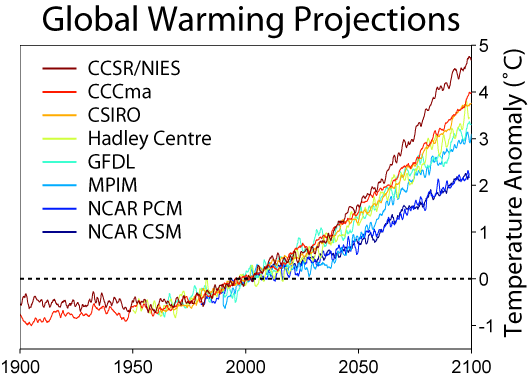In public media the notion that climate change is more than global warming gets repeated frequently.
Are there strong predictions that show that the climate becomes more irregular? Would we expect the weather in any particular place to suffer greater extremes (of temperature, precipitation, wind, etc.)? Are extreme weather events likely to increase (e.g. hurricane frequency or intensity, major wildfires...)?
The claim is repeated often in the media. Here is the Guardian's recent take (decrying the fact that some US sources fail to make a link that is widely accepted elsewhere; highlights are mine):
The phrase "extreme weather" flashes across television screens from coast to coast, but its connection to climate change is consistently ignored, if not outright mocked. If our news media, including – or especially – the meteorologists, continue to ignore the essential link between extreme weather and climate change, then we as a nation, the greatest per capita polluters on the planet, may not act in time to avert even greater catastrophe.
An older archived link from the BBC also makes the point:
Increasing temperatures means the World is likely to see less frosty days and cold spells, but we are expected to experience an increase in heat waves and hot spells
Greater risk of drought in continental areas
Increase in extreme precipitation events
Hurricanes likely to be more intense in some parts of the World due to more rainfall and more intense winds
An intensification of the Asian summer monsoon is expected
Are these reliable predictions or global climate models or are they just the material that makes news a little more interesting thereby leading to coverage being dominated by the less solid parts of climate science?
On of the key things that separates a scientific prediction from the kind of predictions that you read in newspapers is that science isn't vague. A scientist should be able to give you a probability for whether the event he predicts happens.
NB the question is about whether weather variability changes, not just the average weather. That is, is the normal range of variation higher across a year as a result of climate change.

